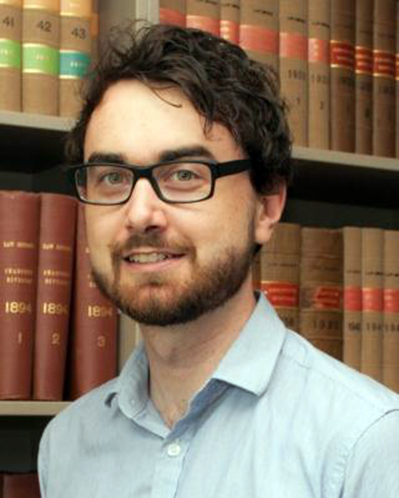
Dr. Joel Harrison is a senior lecturer at Macquarie University, Sydney, Australia, and a visiting fellow with the Foundations Programme for the Foundations of Law and Constitutional Government, University of Oxford. He received his first law degree from the University of Auckland, serving on the editorial board of the Auckland U. L. Review and graduating as a senior scholar in law. After law school, he clerked for Sir Grant Hammond of the Court of Appeal of New Zealand and was a Teaching Fellow at Victoria University, Wellington. He was admitted as a barrister and solicitor of the High Court of New Zealand in 2007. In 2008 he worked as a legal and policy advisor at the New Zealand Law Commission, focusing on sentencing reform. He was then awarded a Woolf Fisher scholarship (NZ) to read for a doctorate in law at the University of Oxford, Magdalen College. While at Oxford, Joel was a graduate teaching assistant in public law and taught constitutional law at Lady Margaret Hall and Harris Manchester College. From 2012 till 2014, he was an associate-in-law (lecturer and post-doctoral researcher) at Columbia Law School. His scholarship focuses on law and religion, human rights, and constitutional law.
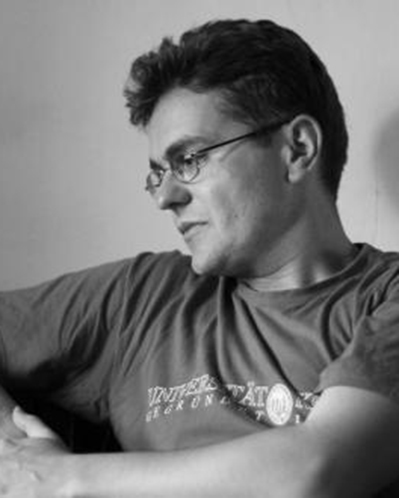
Smillen Markov holds an MA in philosophy with a focus on medieval philosophy from Sofia University. He also earned a PhD in philosophy from the University of Cologne in 2010. His thesis was titled The Metaphysical Synthesis of John Damascene: historical interconnections and structural transformations. Currently he is an assistant professor in Christian philosophy at the Theological Faculty of the University of Veliko Turnovo, Bulgaria, and a visiting fellow at Oxford.
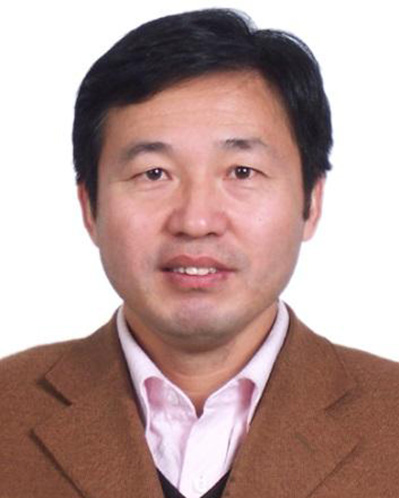
Pinghua Sun has an MA in English Language and Literature (Beijing Normal University), an MA in Arts of English Language Teaching (the University of Warwick), and a PhD in Human Rights Law (China University of Political Science and Law—CUPL). He is a visiting scholar at the University of Exeter School of Law. He currently serves as a professor at China University of Political Science and Law (CUPL). His representative publications include: The Study of the Universal Declaration of Human Rights (Peking University Press 2012); Human Rights Protection System in China (Springer 2014), Pengchun Chang: A Crucial Architect of the International Human Rights System (Social Sciences Academic Press 2017); and Historic Achievement of a Common Standard: Pengchun Chang and the Universal Declaration of Human Right (Springer 2018). He attended international human rights conferences held in the UK, Switzerland, Italy, and the US. He presented on the UDHR in more than twenty Chinese universities including Peking University, Renmin University of China, Fudan University, Guangzhou University, Ji’nan University, Sun Yat-sen University, Beijing Normal University, Nankai University, Hebei University, among others. He also ran a postgraduate course, “Human Rights in China,” at the University of Exeter in 2011.
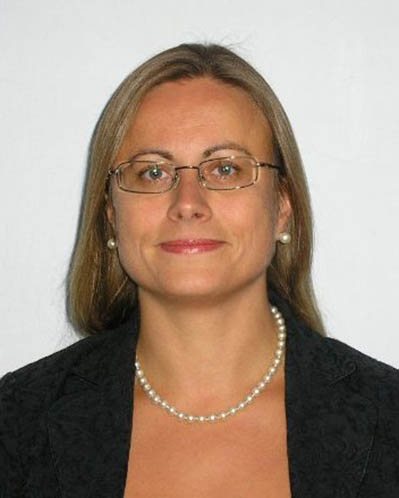
Dr. Merilin Kiviorg (DPhil Oxford, mag iur Tartu) is a senior research fellow in public international law and human rights at the University of Tartu Faculty of Law and an author of many articles published on law and religion, and on European human rights law and practice regarding freedom of religion or belief. She has taught international law, human rights and international relations at the University of Oxford, as well as serving as a lecturer and assistant professor in international law, human rights and EU law at the University of Tartu in Estonia. She was a Max Weber Fellow at the European University Institute in Florence. She has also served as an expert advisor on freedom of religion or belief for non-governmental and governmental bodies (the Estonian Ministry of Internal Affairs, the Legal Chancellor, and the Estonian President). She is currently teaching courses on comparative human rights and on religion and human rights. Her current research interests are human rights and religion in Europe with a special focus on Eastern Europe and specifically Russia.
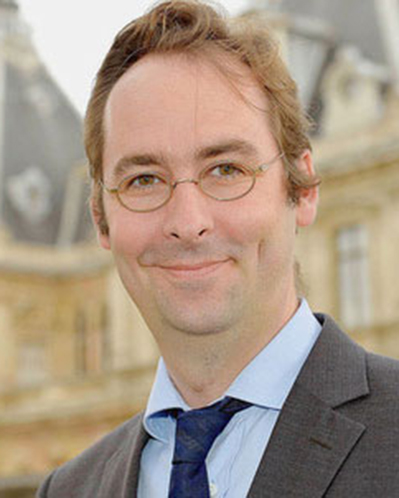
Grégor Puppinck, PhD, is Director General of the European Centre for Law and Justice (ECLJ). He is also a member of the OSCE Panel of Experts on Freedom of Religion or Belief and an expert to the Council of Europe. He takes part in the Committee of Experts on the Reform of the European Court of Human Rights. From 2003 to 2008, he has taught human rights, European law, and constitutional law at the Law School of the University of Haute-Alsace, France. Puppinck holds his PhD with a dissertation in legal theory. He graduated from Paris II Law School and from the Institut des Hautes Etudes Internationales. He is the author of numerous books and legal articles. His most recent book is Conscientious Objection and Human Rights, A Systematic Analysis (Brill, 2017). He has been made Cavaliere della Repubblica by the Italian Government for his services in the Lautsi v Italy case and Knight Commander in the Order of St. Gregory the Great. He received the award of "Humanisme Chrétien" in 2016 for the book La famille, les droits de l'homme et la vie éternelle and the Anton Neuwirth award in 2014.
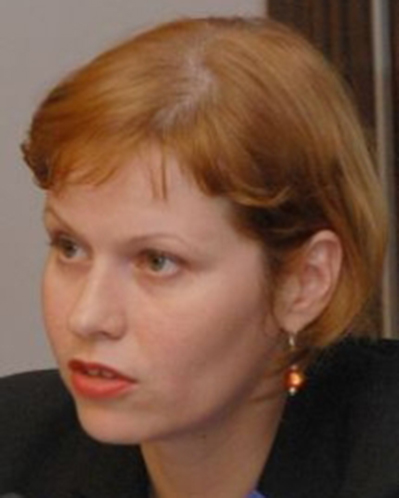
Professor Uitz started teaching at CEU in 2001 and became chair (director) of the Comparative Constitutional Law program in 2007. She is the founding co-director, with Professor Károly Bárd, of the clinical specialization at the Department of Legal Studies. Her teaching covers subjects in comparative constitutional law and human rights with special emphasis on the enforcement of constitutional rights. Theories and practices of good government, transition to and from constitutional democracy, questions of personal autonomy and equality, including religious liberty and sexual autonomy, are at the center of her research interests.
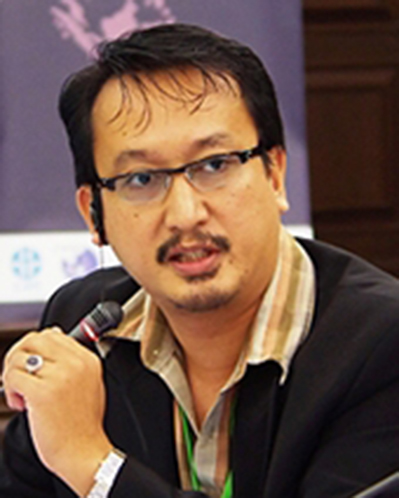
Dicky Sofjan is a core doctoral faculty in the Indonesian Consortium for Religious Studies (ICRS), an international, interdisciplinary, and inter-religious PhD program at the Graduate School of Universitas Gadjah Mada (UGM) in Yogyakarta. Sofjan is the principal investigator of a nine-country collaborative research program on religion, public policy, and social transformation in Southeast Asia, sponsored by the Henry Luce Foundation. His research has mostly been focused on the nexus between religion and politics with an emphasis on Islam in the public sphere. He is currently leading a research team to develop a prototype system for the Indonesian Interfaith Weather Station (IIWS), an early warning system that would preempt, prevent, and mitigate intra- and inter-religious conflicts.
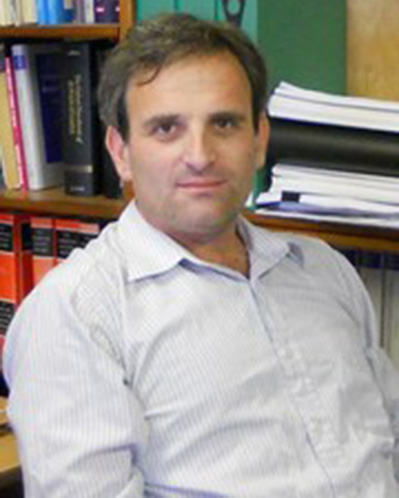
Joseph E. David is a visiting professor of law at Yale Law School and the Program in Judaic Studies at Yale University. He is an associate professor of law at Sapir Academic College in Israel. His research focuses on law and religion, legal history, comparative law, and jurisprudence. He is the author of The State Rabbinate: Election, Separation and Freedom of Expression (2000), The Family and the Political: On Belonging and Responsibility in a Liberal Society (2012), Toleration within Judaism (2013), and Jurisprudence and Theology in Late Ancient and Medieval Jewish Thought (2014). He edited The State of Israel: Between Judaism and Democracy (2000), Questioning Dignity: Human Dignity as Supreme Modern Value (2006), Nomos and Narrative for the Hebrew Reader (2012), and The Gift of the Land and the Fate of the Canaanites in Jewish Thought (2014). Professor David has held academic positions at the University of Pennsylvania, Rutgers University, New York University, the University of Oxford, the Hebrew University, the Interdisciplinary Centre Herzliya, and The Max Planck Institute for Social Anthropology.
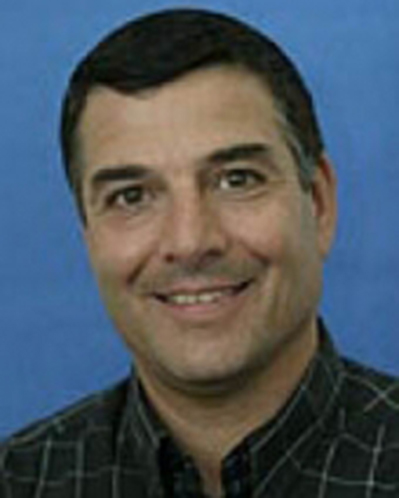
Dr. Haim Shapira is a professor of law at Bar-Ilan University, Israel. His main areas of teaching and research are: Jewish law, rabbinic literature, legal theory and law and religion. He received his PhD and other degrees in law and in Jewish studies from the Hebrew University of Jerusalem. His articles are published in Israeli, American, and European leading journals. He was the Editor-in-Chief of Bar-Ilan Law Review and the Editor-in-chief of the Journal of Law, Religion and State and now a member of its editorial board. He was a research fellow and a visiting professor at various American and European universities including Milan University, School of Law (2016), NYU School of Law (2013-2014), and The Institute for Advanced Study, Princeton (2005-2006).
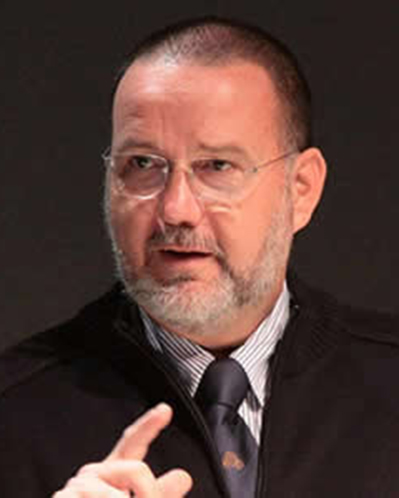
Alberto Melloni is a professor of History of Christianity at the University of Modena-Reggio and Chair Holder of the Unesco Chair on Religious Pluralism and Peace for his university and the University of Bologna. Since 2007 he has also served as director of the John XXIII Foundation for Religious Studies in Bologna. He serves on the board of several international journals of religion and has written numerous books on the history of the Vatican. He was a contributing author to The History of the Second Vatican Council and he currently serves as a member of the EU's TRES (Teaching Religion in a multicultural European Society).
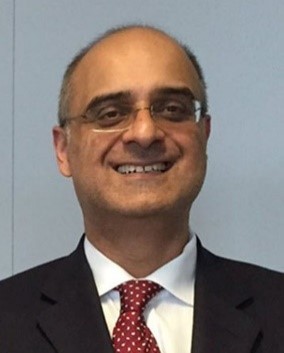
Dr. Kishan Manocha is Senior Adviser on Freedom of Religion or Belief at the Organization for Security and Co-operation Europe Office for Democratic Institutions and Human Rights in Warsaw. He has served as Director of the Office of Public Affairs of the Bahá’í community of the United Kingdom. He holds degrees in medicine and law from the Universities of London and Cambridge respectively. He has extensive experience in religious freedom and minority rights issues in the Middle East, North Africa, and South Asia as a consultant to international and non-governmental organizations. He first trained in psychiatry, completing a Research Fellowship in Forensic Psychiatry, before studying law. He specialized in international criminal and human rights law for his LLM and practiced as a barrister in a number of international criminal law cases before the English courts. He has worked at the Special Court for Sierra Leone and has been a Visiting Research Fellow at the Carr Center for Human Rights at Harvard as well as a Fellow of the Montreal Institute for Genocide and Human Rights Studies at Concordia University. He has lectured at universities in the United Kingdom and Pakistan, and is a Research Fellow at the Religious Freedom and Business Foundation, a Professional Associate at the Centre for Law and Religion at Cardiff University, and a member of the Advisory Council of the Centre for Religion and Global Affairs.

In May 2016 Ján Figeľ was nominated by the European Commission as the first Special Envoy for promotion of freedom of religion or belief (FoRB) outside the European Union. Formerly European Commissioner for Education, Training & Culture, Mr. Figeľ has also held other positions such as State Secretary of the Ministry of Foreign Affairs and was the Chief Negotiator for Slovakia's accession into the EU. He joined the Christian Democratic Movement party in 1990 and was elected in 1992 as an MP to the National Council of the Slovak Republic, serving on its Foreign Affairs Committee and becoming a member of Slovakia's delegation to the Council of Europe. In 1998 he was appointed State Secretary of the Ministry of Foreign Affairs, and was also the representative of the Slovak government in the European Convention which drafted the European Constitution. From 2004 to 2009 he served as European Commissioner for Education, Training, Culture and Multilingualism, with a brief stint as Commissioner for Enterprise and Information Society. In 2009 he was elected leader of the Christian Democratic Movement in Slovakia. He stepped down from his Commission post in 2009 following his election as leader of the Christian Democratic Movement in Slovakia.
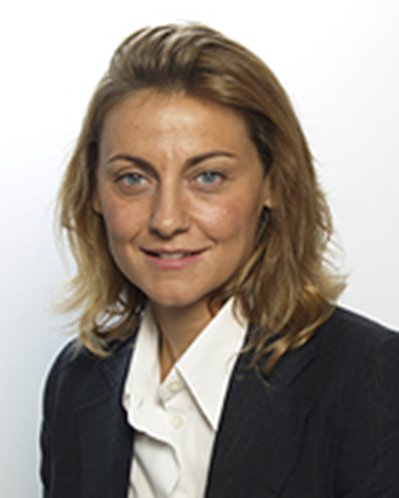
Eugenia Relaño Pastor is a senior researcher at the Law and Anthropology Department in the Max Planck Institute (MPI) for Social Anthropology since November 2017. She joined the MPI to coordinate and to develop a legal database on cultural and religious diversity (CUREDI). The current CUREDI Database addresses the management (and governance) of cultural and religious diversity by providing a new set of data on case law, legislations and regulations, public documents and policies across multiple EU Member States and it aims to give a coherent framework to the study of trends in legal practices and legal interpretations with respect of the balancing of culture and religion in law. Prior to joining the Max Planck Institute for Social Anthropology, she worked as a legal adviser for the Spanish Ombudsman in the Department of Migration and Equal Treatment for thirteen years. She worked as a legal trainer for national human rights institutions in Kazakhstan, Armenia, Macedonia and Turkey. She holds a doctorate degree in law from the University of Granada. She also holds bachelor degrees in political science and in sociology. She is an assistant professor at Complutense University (Madrid) and achieved accreditation as a tenured professor in 2006. She was a Fulbright Fellow in the Salzburg Seminar in 2001 and a visiting scholar at several universities. She was member of the Advisory Panel of Experts on Freedom of Religion and Belief, ODIHR-OSCE (2005-2012). Currently she is the Spanish representative member of the Legal Working Group (LWG) of the European Group of National Human Rights Institutions (Council of Europe). Her research expertise comprises International Religious Freedom, Comparative Law, Equality and Non-discrimination, Religious and National Minorities, Xenophobia, Multiculturalism and Immigration. Among her publications is the forthcoming EU Anti-discrimination Law Beyond Gender: Achievements, Flaws and Prospects (Hart,Cambridge)
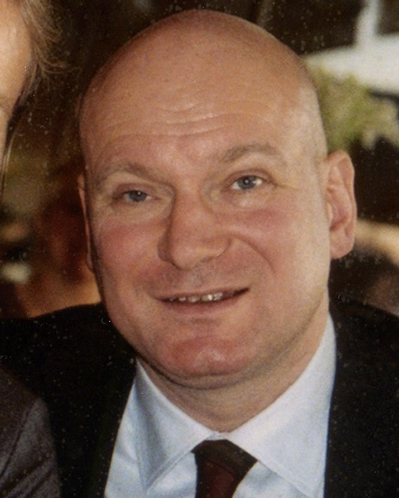
Hans Ingvar Roth is Professor of Human Rights at Stockholm University. He holds a PhD in ethics from Lund University and a master of letters in philosophy from Oxford University. He has written extensively on human rights, freedom of religion, affirmative action and multiculturalism. His most recent book is P.C.Chang and the Universal Declaration of Human Rights (forthcoming at University of Pennsylvania Press in October 2018). Roth has also worked as Human Rights Officer for OSCE and as a senior advisor for the Ministry of Justice in Sweden.
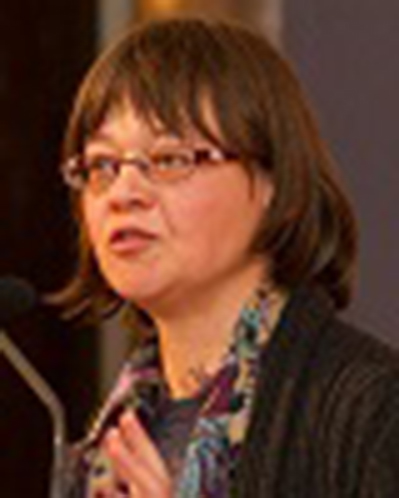
Catherine Dupré holds a PhD from the European University Institute and is an associate professor in comparative constitutional law. She is currently the Director of Doctoral Studies for the Law School. Her research focusses on human rights, constitutional adjudication, constitutional reforms and drafting. She is a founding member of the Human Rights and Democracy Forum. She was a pioneer in studying and developing the concept of human dignity in the field of comparative constitutional law and her latest monograph, The Age of Dignity (Bloomsbury/Hart 2015), stands out in the field as the first comprehensive and theoretical engagement with this concept in the European context. She is an advisor to the Dignity-Rights Project launched in May 2017. An expert on Hungarian constitutionalism, she was one of the first scholars to engage in critical discussion of the Hungarian government’s self-proclaimed turn to ‘illiberal democracy’. Her analysis of the Fundamental Law’s provision on human dignity was translated into Hungarian, Spanish, Italian and French. To promote international discussion on the crises of democracy, she convened an interdisciplinary conference in Budapest in 2016 with leading Hungarian constitutional law scholars, Kriszta Kovács and Gábor Tóth. That same year, with Ágúst Thór Árnason, she organized an international conference on constitutional reform in Iceland at the University of Akureyri. A senior fellow of the Higher Education Academy, she was previously a lecturer at the University of Birmingham and the University of Wales Aberystwyth, and was a guest lecturer at the Institut d’Etudes de Sciences Politiques in Toulouse and a visiting professor at Paris I La Sorbonne. Over the years, she has taught many courses on human rights, constitutional law and European law. At the University of Exeter, she is teaching UK constitutional and administrative law and has developed specialist courses on human dignity at undergraduate and postgraduate levels.
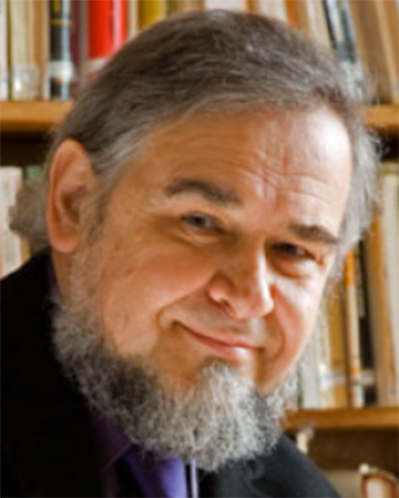
Paul Fiddes has taught at Regent’s Park College since 1972, successively as a research fellow, a tutorial fellow in Christian Doctrine, Principal (1989-2007), and Director of Research. He was Chairman of the Board of the Faculty of Theology and Religion, and is an honorary fellow of St Peter’s College, Oxford. As an ordained Baptist minister, he has fostered ecumenical relations, acting as co-chair of conversations between the Baptist World Alliance and both the Anglican Communion and the Roman Catholic Church, and serving as an ecumenical representative on the General Synod of the Church of England. He is an ecumenical canon of Christ Church Cathedral, Oxford, and an ecumenical prebendary of St Endellion, North Cornwall. Fiddes’ research interests are in the doctrine of the Triune God, wisdom literature, the relations between theology, literature and late-modern philosophy, and ecumenical ecclesiology. Leisure interests include music, canal boats, and steam trains. He recently published his first novel, a mystery exploring the mythology and symbolism of the unicorn: A Unicorn Dies: A Novel of Mystery and Ideas (Firedint: Oxford, 2018). Professor Fiddes holds a BA (Hons, English Language and Literature), an MA and a DPhil in Theology, and a DD from Oxford.
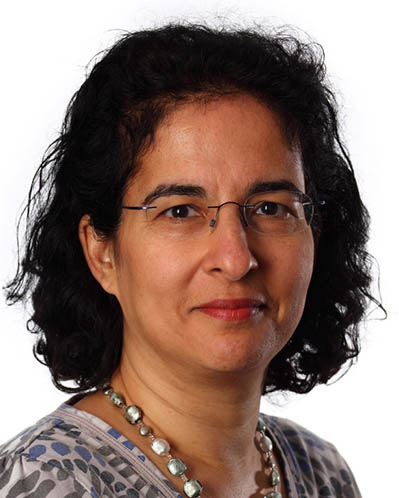
Dr Nazila Ghanea is an associate professor in international human rights law at the University of Oxford. She serves as Associate Director of the Oxford Human Rights Hub and is a fellow of Kellogg College (BA Keele, MA Leeds, PhD Keele, MA Oxon). She serves as a member of the OSCE Panel of Experts on Freedom of Religion or Belief and on the board of trustees of the independent think tank, the Universal Rights Group. She has been a visiting academic at a number of institutions including Columbia and NYU, and previously taught at the University of London and Keele University, UK and in China. Nazila’s research spans freedom of religion or belief, freedom of expression, women’s rights, minority rights and human rights in the Middle East.
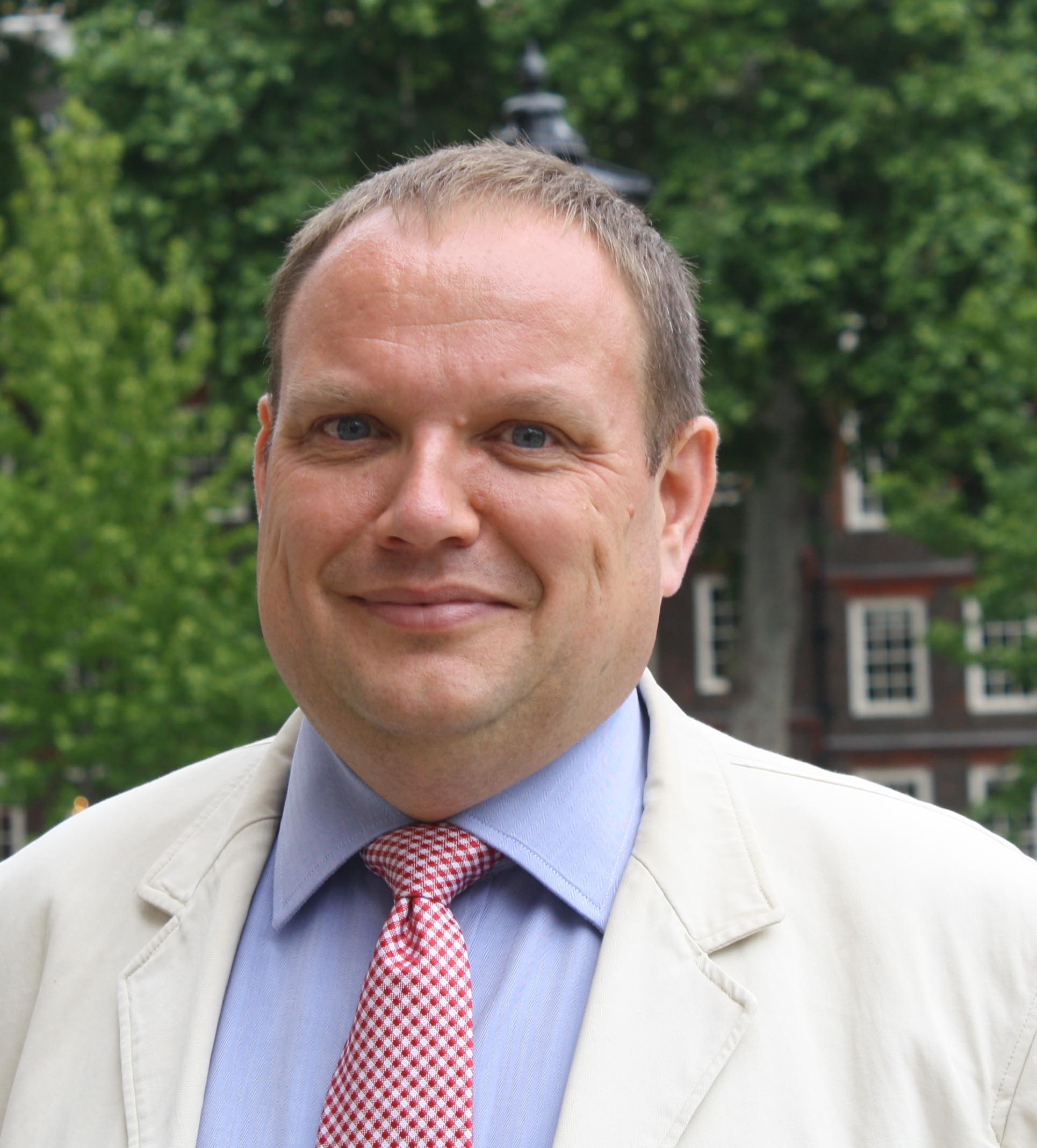
Mark Hill QC is Honorary Professor at the Centre for Law and Religion at Cardiff University; Extraordinary Professor the University of Pretoria; Visiting Professor at King's College London; Adjunct Professor at Notre Dame University Law School, Sydney, Affiliated Fellow of the Center for the Study of Law and Religion at Emory University, Atlanta, and the 2019 Sharwood Lecturer in Canon Law at Trinity College, University of Melbourne. Mark is Chairman of the Ecclesiastical Law Society and Vice-President of the International Consortium for Law and Religion Studies and a former President of the European Consortium for Church and State Research. He is Consultant Editor of the Ecclesiastical Law Journal, a member of the International Advisory Board of the Revista General de Derecho Canónico y Derecho Eclesiástico del Estado and sits on the Editorial Board of the Oxford Journal for Law and Religion. He holds various judicial appointments including one of Her Majesty’s Recorders on the Midland Circuit hearing criminal cases. He is a Deputy Judge of the Immigration and Asylum Appeal Tribunal, and Chancellor of the Anglican Dioceses of Chichester, Leeds, and Europe. His recent publications include the fourth edition of the practitioner text Ecclesiastical Law (2018), Religion, Law and Security (2018), Great Christian Jurists in English History (2017), The Confluence of Law and Religion (2016), and Magna Carta, Religion and the Rule of Law (2015). He is currently co-editing Christianity and Criminal Law: An Introduction and The Routledge Handbook of Freedom of Religion of Belief, both scheduled for publication in 2019.
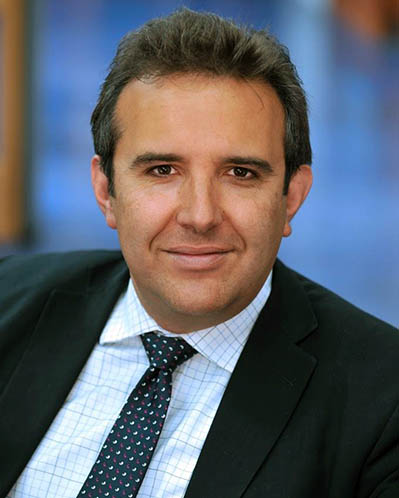
Dr. Peter Petkoff is a senior law lecturer at the Brunel Law School. He is also Director of the Religion, Law and International Relations Programme, a collaborative international research network at Regent's Park College, Oxford, and Managing Editor of the Oxford Journal of Law and Religion. He is Legal Consultant on Media Freedom and Freedom of Expression for the Representative on Freedom of the Media at the Organisation for Security and Cooperation in Europe, and has been a TEPSA consultant of the European Parliament as well as a consultant for the All Party Parliamentary Group on International Freedom of Religion or Belief at the House of Lords. Peter is involved in cutting edge research on the relationship between religion and politics, and law and religion. In his capacity as Director of the Religion, Law and International Relations Programme at Regent's Park College, Oxford, he brings together lawyers, theologians, philosophers, social and political scientists and aims to develop innovative interdisciplinary strategies for studying law, religion, and international relations from legal and theological perspectives.
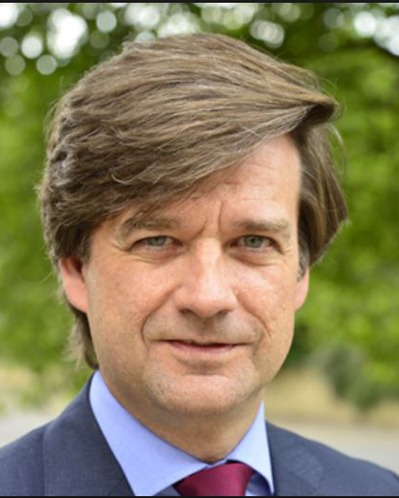
Paul Yowell has been Fellow and Tutor in Law at Oriel College since October 2012. Prior to that he was a lecturer in law at New College, and a postdoctoral fellow with the Oxford Law Faculty for the AHRC project Parliaments and Human Rights. He completed the BCL in European and Comparative Law and MPhil in Law at Balliol College, and the DPhil in Law at University College. His areas of teaching are Constitutional Law, EU Law, Jurisprudence and Human Rights.
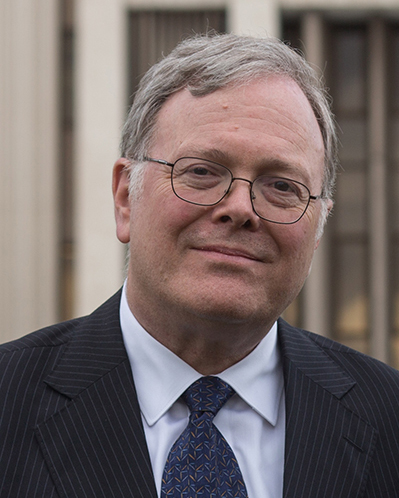
Cole Durham is Susa Young Gates University Professor of Law and Founding Director of the International Center for Law and Religion Studies (ICLRS) at the J. Reuben Clark Law School of Brigham Young University. He is a graduate of Harvard College and Harvard Law School, where he was a Note Editor of the Harvard Law Review and Managing Editor of the Harvard International Law Journal. He has been heavily involved in comparative law scholarship, with a special emphasis on comparative constitutional law. He is a founding Editor-in-Chief of the Oxford Journal of Law and Religion. He served as the Secretary of the American Society of Comparative Law from 1989 to 1994. He is an Associate Member of the International Academy of Comparative Law in Paris—the premier academic organization at the global level in comparative law. He served as a General Rapporteur for the topic 'Religion and the Secular State' at the 18th Congress of the International Academy of Comparative Law, held in July 2010. He served in earlier years as Chair both of the Comparative Law Section and the Law and Religion Section of the American Association of Law Schools. Professor Durham was President of the International Consortium for Law and Religion Studies (ICLARS) from 2011-2016.
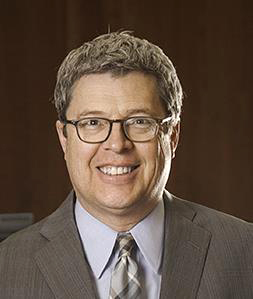
Brett Scharffs is the Rex E. Lee Chair and Professor of Law at Brigham Young University’s J. Reuben Clark Law School, and Director of the International Center for Law and Religion Studies. His teaching and scholarly interests include law and religion, legal reasoning and rhetoric, philosophy of law, and legislation and regulation. Professor Scharffs is a graduate of Georgetown University, where he received a BSBA in international business and an MA in philosophy. He was a Rhodes Scholar at Oxford University, where he earned a BPhil in philosophy. He received his JD from Yale Law School, where he was Senior Editor of the Yale Law Journal. In his eighteen-year academic career, Professor Scharffs has written more than 100 articles and book chapters, and has made over 300 scholarly presentations in 30 countries. His field-creating casebook, Law and Religion: National, International and Comparative Perspectives, published by Aspen Press / Wolters Kluwer (co-authored with his BYU Law School colleague, W. Cole Durham, Jr.), has been translated into Chinese (now in its second printing) and Vietnamese, and translations are underway into Arabic, Burmese, Indonesian, and Turkish. A second English ediition is set for late 2018. He has served as Chair of the Law and Religion Section of the Association of American Law Schools, and is immediate past Chair of the Law and Interpretation Section of the AALS. He is on the editorial board of the Oxford Journal of Law and Religion and the Advisory Board of the Research Unit for the Study of Society, Law and Religion at the University of Adelaide.
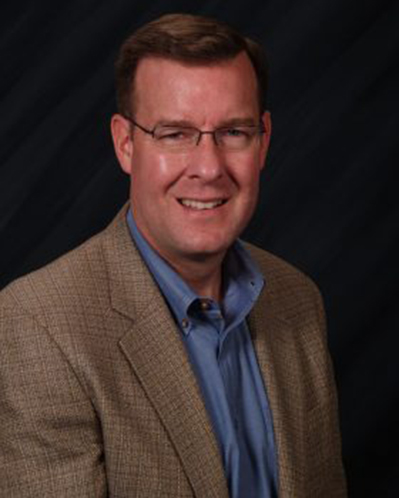
Chris Seiple is the president emeritus of the Institute for Global Engagement, a think- and do-tank operating at the intersection of religion, realpolitik, and reconciliation. He has worked in Northern/Eastern Africa, the Middle East, Central/South Asia, and China and Southeast Asia. Dr. Seiple is chief executive officer of the Sagestone Group, which advises on strategy and training. He is a senior fellow at the University of Washington’s Jackson School of International Studies, where he teaches cross-cultural religious literacy. A former Marine infantry officer (1990-99), Dr. Seiple has also served as an advisor to the U.S. secretary of state, co-chairing the secretary’s religion and foreign policy working group, whose recommendations led to the creation of the Office of Religion and Global Affairs. He is the former chair of the World Economic Forum’s Council on the Role of Faith (2014-2015). Dr. Seiple is an inaugural member of the U.S. Marine Corps Commandant’s Strategic Initiatives Group, where he helped develop/implement the Chemical-Biological Incident Response Force in 1996; he was also seconded to the 1997 National Defense Panel, whose final report he helped draft. Dr. Seiple’s book, The U.S. Military/NGO Relationship in Humanitarian Interventions, is a seminal work in the field. He is the 2003 founder of the Routledge-published journal The Review of Faith & International Affairs, and he is the coeditor of The Routledge Handbook on Religion and Security (2013). Dr. Seiple has a BA in international relations from Stanford University, an MA in national security from the Naval Postgraduate School, and a PhD from Tufts University’s Fletcher School of Law and Diplomacy.
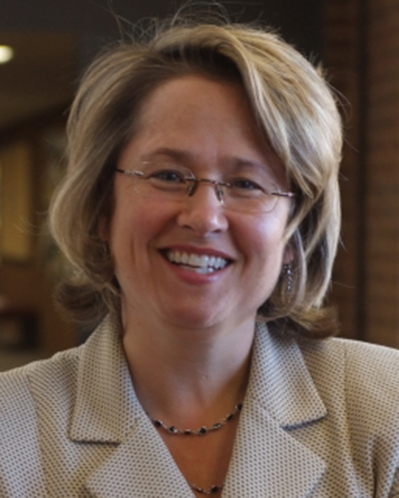
Robin Fretwell Wilson is the Roger and Stephany Joslin Professor of Law at the Illinois College of Law, where she directs the College of Law’s Family Law and Policy Program and the Epstein Health Law and Policy Program. She specializes in family law and health law, and her research and teaching interests also include biomedical ethics, law and religion, children and violence, and law and science. The author of many articles and eleven books, she is a frequent contributor to national and international media, and has presented her research across the world. Her scholarship has been cited in courts across the US. A member of the American Law Institute, Professor Wilson was elected in 2014 to the Executive Council of the International Society of Family Law. She is a consultant to the United Arab Emirates’ Judicial Department, assisting them to create a parallel court system for the adjudication by expatriates of family law matters using the laws of their home country or of their faith traditions. She chairs the Law and Religion section of the Association of American Law Schools (AALS), and is the past chair of the AALS’ Section on Family and Juvenile Law and the AALS’ Section on Law, Medicine & Healthcare. Professor Wilson directs the Fairness for All Initiative, sponsored by the Templeton Religious Trust, providing tangible support and advice to thought-leaders, stakeholders, policymakers, and state and local legislators who seek balanced approaches that respect both LGBT rights and religious freedom. She contributed to the Utah Compromise, balancing religious liberty and LGBT rights. She is the founder and director of Tolerance Means Dialogues, and has received multiple awards for her contributions to the defense of religious freedom and fairness for all. A graduate of the University of Virginia School of Law, Professor Wilson clerked for the United States Court of Appeals for the Fifth Circuit and practiced at Fulbright & Jaworski, LLP and Mayor, Day, Caldwell & Keeton, LLP.
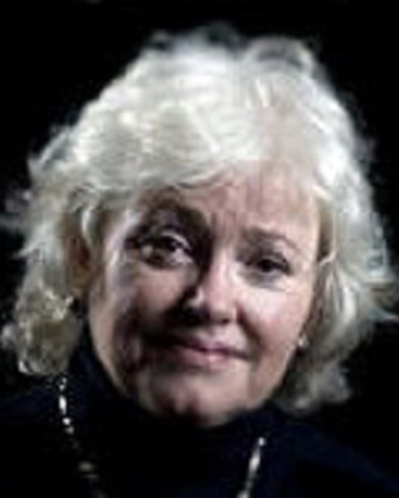
Jane Wise is an associate director at the International Center for Law and Religion Studies at Brigham Young University's J. Reuben Clark Law School. She comes most recently from twenty years as an adjunct professor (advocacy faculty) at the Law School, where she served on the legal writing and external relations committees. She taught legal writing, lawyering skills, and law and literature courses in the classroom, as well as legal writing classes online. She developed curricula for the American legal academy including materials for English as a–second-language law students, and the writing curriculum she helped design for BYU Law's Rex E. Lee Advocacy Program was ranked 17th in the nation for legal writing programs in law schools by U.S. News and World Report in 2000, and continues to the present. Wise has edited all print publications at BYU Law School for the past fifteen years, and has been editor of the Clark Memorandum, BYU Law School's alumni magazine published bi-annually, since 2001. She is currently a commentor on Public Radio International and National Public Radio, a featured columnist for Salt Lake Tribune and Utah Valley Magazine, and an essayist for the "Music and the Spoken Word", the Sunday morning radio and television broadcast of the Mormon Tabernacle Choir. Wise holds BA/BFA and JD degrees from the University of Utah. Prior to entering academia, she clerked for the Utah Supreme Court and maintained a general practice of law.
